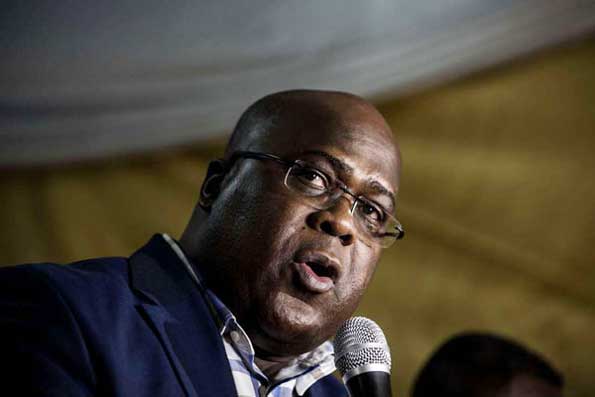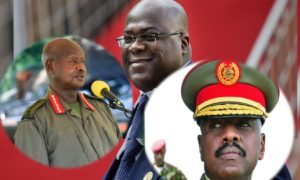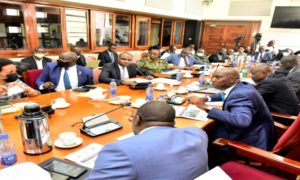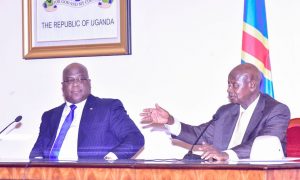Congolese opposition activists fought for years to get Joseph Kabila to do something uncommon among African authoritarians: obey term limits and step down.
When he begrudgingly agreed last August, they were thrilled. Even though he’d delayed elections again and again, extending his rule to 18 years, his exit created the possibility of Congo’s first democratic transfer of power.
“We thought: This is it. Things are going to change,” said Mvemba Dizolele, a Congolese professor, author and activist. “Now, it’s like: What just happened?”
Instead of a free and fair election, Congo’s people appear to have participated in a fait accompli. The election was marred by irregularities, and voting data from the election commission database, leaked to the Financial Times and other outlets, showed that another candidate, Martin Fayulu, won around 60 percent of the vote.
The announced winner was not Kabila’s chosen successor — who was deeply unpopular — but Felix Tshisekedi, an opposition leader. Tshisekedi was inaugurated at Congo’s National Palace on Thursday.
“The genius of it is that they rigged it in favor of an opposition candidate who they could co-opt,” said Jason Stearns, who leads a Congo-focused think tank in New York. “This isn’t the worst that could have happened, but it’s a big blow to the idea of democracy in Congo.” Kabila’s government denied allegations of vote rigging.
The unexpectedness of Tshisekedi’s ascent has riven the country’s opposition into factions and left many Congolese in a disenchanted daze.
They have not come out on the street in violent backlash as some had feared but instead hunkered down, pleased Kabila is out of office yet unsure whether he is still in power. Kabila’s party, astonishingly for having lost the presidency, won three-quarters of the seats in Congo’s senate.
“The question remains open,” Dizolele said. “Can we ever have a real transition, a president that represents the will of the people that is fully legitimate?”
Full-fledged democracy in Congo has been a distant dream since the 1961 assassination of Patrice Lumumba, independent Congo’s first prime minister. He fell afoul of Cold War-era fears in the United States and Belgium, Congo’s colonizer, which both supported his killing just one year after Congo became free.
Tshisekedi, now 55, was born shortly after Lumumba’s assassination and grew up in relative comfort as the son of Etienne Tshisekedi, the founder of Congo’s longest-running opposition party who was alternately jailed and given official positions by the three leaders Congo has had over the past half-century.
Felix bears a striking resemblance to his adored father, earning him points among the party faithful. But he is a political novice and now enters office hamstrung by Kabila’s control of the legislature.
Kabila will continue to play a major role in Congolese politics. He retains the vague but official title of “moral authority” of his political party, which indicates he will “orchestrate most of Congo’s big decisions behind the scenes,” Stearns said. And he has not ruled out a return to power in the 2023 elections.
Fayulu, the opposition candidate who led the polls ahead of the vote, campaigned vociferously as the anti-Kabila candidate. While Tshisekedi stayed mostly silent as widespread irregularities and disenfranchisement hollowed out trust in the election, Fayulu lambasted them in front of crowds of tens of thousands.
To his supporters, Fayulu was the one who would hold Kabila accountable for the corruption that many allege enriched his family while the most of the country remains extremely impoverished and mostly without electricity or clean water. Kabila has denied charges of corruption.
Before the election, Tshisekedi sounded a similar tone to Fayulu, often stressing his belief that Congo needed a “truth and reconciliation commission” similar to Rwanda’s or South Africa’s that would hold Kabila to account.












